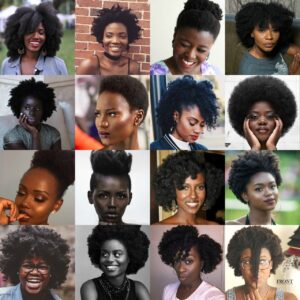
For African American women, wearing natural hair in the workplace can either be detrimental to their career or uplifting for another.
The term “going natural” is a procedure done by the majority of black women who cut off their hair to free their hair from the many chemicals and excessive heat that have either dried out their hair or caused it to fall out.
As little girls, many chemicals are put in their hair from perms; a chemical used to change the texture of one’s hair from curly to straight.
“I literally wear my hair just how I want, big and puffy and don’t care,” said Jasmine Clemons, a political director for the Southeast campaign in Washington, DC. Clemons says that sometimes she has felt the need to put her hair in a bun so it wouldn’t distract folks, mainly white men, but chooses to show up to work just as she is.
Clemons says she actually receives more compliments than complaints about her natural hair. She went natural in 2002.
“Most people like it, my mom hates it, but being in D.C. and campaigning for a black woman, Kamala D. Harris, no one ever says a word about me changing it,” she said.
There are multiple jobs that won’t accept black women being unapologetically black, which includes them wearing their natural hair. Brittany Noble, 32, a former news anchor at WJTV in Jackson, Mississippi, was fired in January of 2019 for wearing out her natural hair, according to Ebony.com. After her news director gave her the green light to wear out her natural hair after she just had a baby boy, a month later he told her that wearing her natural hair was the equivalent to him throwing on a baseball cap to go to the grocery store.
Keta Browning, entrepreneur and owner of Ocala-based Natural Oats, is a FAMU alumna, went natural nine years ago.
“After graduating from FAMU in the broadcast journalism program in 2015, I held freelance positions building websites and social media management before starting my business, so I never received any complaints about my hair. But I will say choosing to embrace my natural hair has motivated me to work for myself and be my own boss,” Browning said.
Attending FAMU right after graduating high school and seeing so many people just like her is what made Browning feel right at home and even more comfortable about her natural hair.
According to the Associated Press, California became the first state to ban workplace and school discrimination against black people for wearing hairstyles such as braids, twists and locks.
For black women, hair is more than just the follicles attached to the scalp; it’s who they are as an individual, an unapologetically black individual.